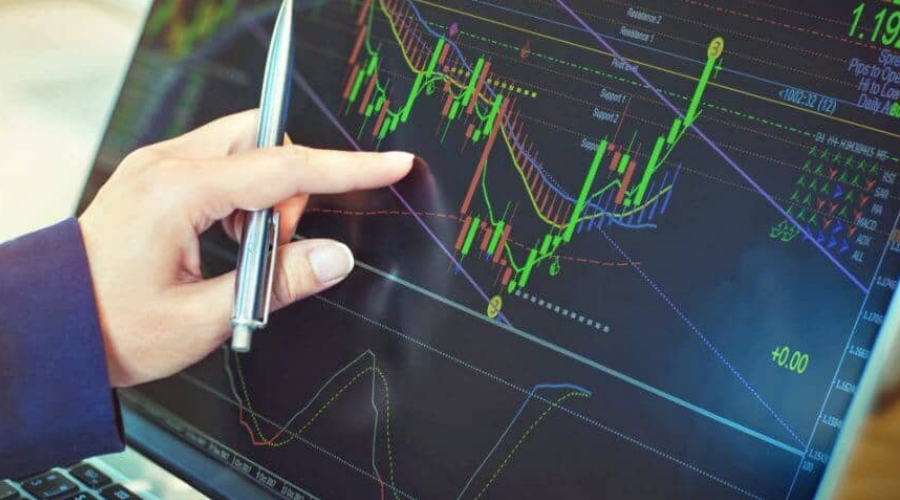Outside of retirement, people typically begin investing by purchasing stocks, exchange-traded funds (ETFs), and other comparable assets, which are available for purchase every day during regular trading hours. However, investors engage in extensive work and research beyond that window. Presale futures are an example of this kind of trade.
A basic understanding of pre-market futures can help you find investing tips and ideas that aren’t the usual ones. Research how they work and what they mean to buyers to decide if you want to start using them.
What are the futures traded before the market opens?
Presale futures are agreements to buy or sell an investment at a certain price on a specific date in the future. For instance, you could formally commit to purchasing ten shares of a stock at a price of $50 each, one week following the establishment of the contract. At the end of the contract period, you will pay $500 to secure all ten shares, no matter what the stock’s market price is. If the stock’s market price goes down during that week, you may pay more for the shares than they’re worth. But if the stock’s value goes up over the course of the week and the shares become worth more than $500, you might have gotten a good deal.
The pre-market trading period typically begins at 8 a.m. Eastern Time and ends at 9:30 a.m. Eastern Time. Pre-market futures trade at that time. Nevertheless, futures and stocks do not trade with each other. Instead, futures-related actions take place in various markets. Moreover, different markets might focus on a certain type of future. For example, the New York Mercantile Exchange (NYMEX) deals with goods like metals exclusively.
Moreover, trade actions before the market opens can take place over various electronic communication networks (ECNs). In contrast to the New York Stock Exchange (NYSE), these don’t have actual buildings. They’re actually just digital spaces where traders can meet when trading hours aren’t in effect.
Reasons for Pre-Market Futures
Futures trading before the market opens bears similarities to bets in various aspects. People expect a stock to exhibit specific behaviors during regular trading hours. As a result, they made futures contracts to buy investments at low prices or sell them for more than the market rate.
Futures contracts are generally good for buyers when the market price of a stock is higher than the price they agreed to pay in the contract. And when that happens, they basically get a profit equal to the difference between what they paid and what the market price was. Anyone who decides to sell right away could make money quickly.
According to sellers, they want to make a deal where the buyer agrees to pay more than the stock’s market value. The seller makes more money by selling the stock to the serious buyer than they would have if they had traded during normal trading hours that day.
Futures prices before the market opens don’t always accurately reflect “fair value” trades, as individuals typically utilize features to achieve these objectives. When neither the buyer nor the seller has a cash gain compared to buying or selling during normal business hours, the trade is considered fair value.
How Investors Can Benefit from Pre-Market Futures
The action in the pre-market futures market is interesting, even though investors don’t usually participate in it. Market experts and investors often predict stock, commodity, and other asset opening prices by examining pre-market futures. In addition, pre-market futures can show how people feel about a possible investment change, which could help an investor guess how prices will move in the next few days or weeks.
Occasionally, what happens in the futures market before it opens affects the next trading day. For instance, if pre-market futures show that the price of a certain stock might go down, that might make some investors uncomfortable with investing in that business. These changes could cause more investors to try to sell and fewer buyers to buy, creating a situation where the futures action basically confirms itself.
Pre-market options and prices, however, don’t always match up once the markets open. Occasionally, trading activity after business hours can be unpredictable, and it may not reflect how investors feel during regular business hours the next day. Unexpected news or events that affect stock prices in ways that the futures market cannot account for can also cause differences in prices.
Pre-Market Trading: Who Can Participate?
No longer is pre-market trading limited to a small group of investors, usually qualified professionals or wealthy individuals. Many platforms allow trading outside of usual business hours, so technically anyone can do it.
To trade before the market starts, you’ll need to join a brokerage that lets you trade beyond regular business hours. Robinhood, for instance, lets you trade and do other things between 7 a.m. and 9:30 a.m. Eastern on a limited basis. Anytime a deal happens outside of normal trading hours, the market and asset must be able to support it.
Specifically for futures, you also need an account at an exchange that lets you trade futures. Additionally, you might need to take extra steps to get permission to use those tools; they aren’t always available by default.
Advantages and disadvantages of trading futures before the market opens
Once more, trading futures is a lot like betting: two investors are each hoping that the value of a stock or other similar object will change in their favor, but only one of them will win in the end.
Breaking even is possible, but most futures contracts have one of the buyers or sellers winning and the other person losing money, at least at first. Because of this, people usually think of buying pre-market futures as risky.
There are two more reasons the risk is pretty high: there are often signs that both the buyer and the seller could be right about how prices will move in the market in the future. When this isn’t the case, a deal is typically unfeasible—either the buyer or the seller, aware of their likely loss before the deal, would not agree to the terms.
However, pre-market futures may be worth looking into, even though they are naturally riskier than buying and selling stocks the old-fashioned way. Some people use them to broaden their investments or protect themselves. Some investments may also let you roll over payments to a later date.
Additionally, as an individual investor, you need to make sure that pre-market futures fit with your investment plan and the amount of risk you are willing to take. If they don’t, you should stick with other choices, especially if you’re a newcomer to investing.


